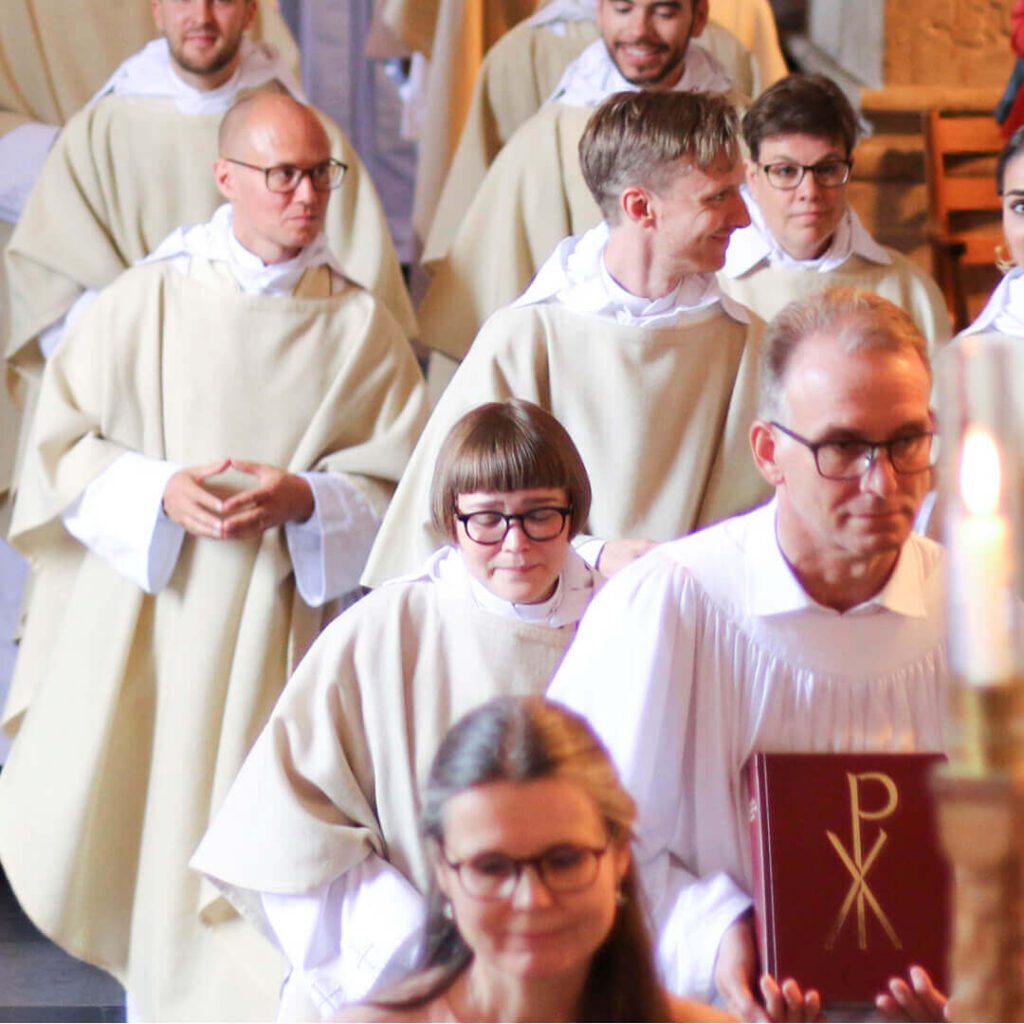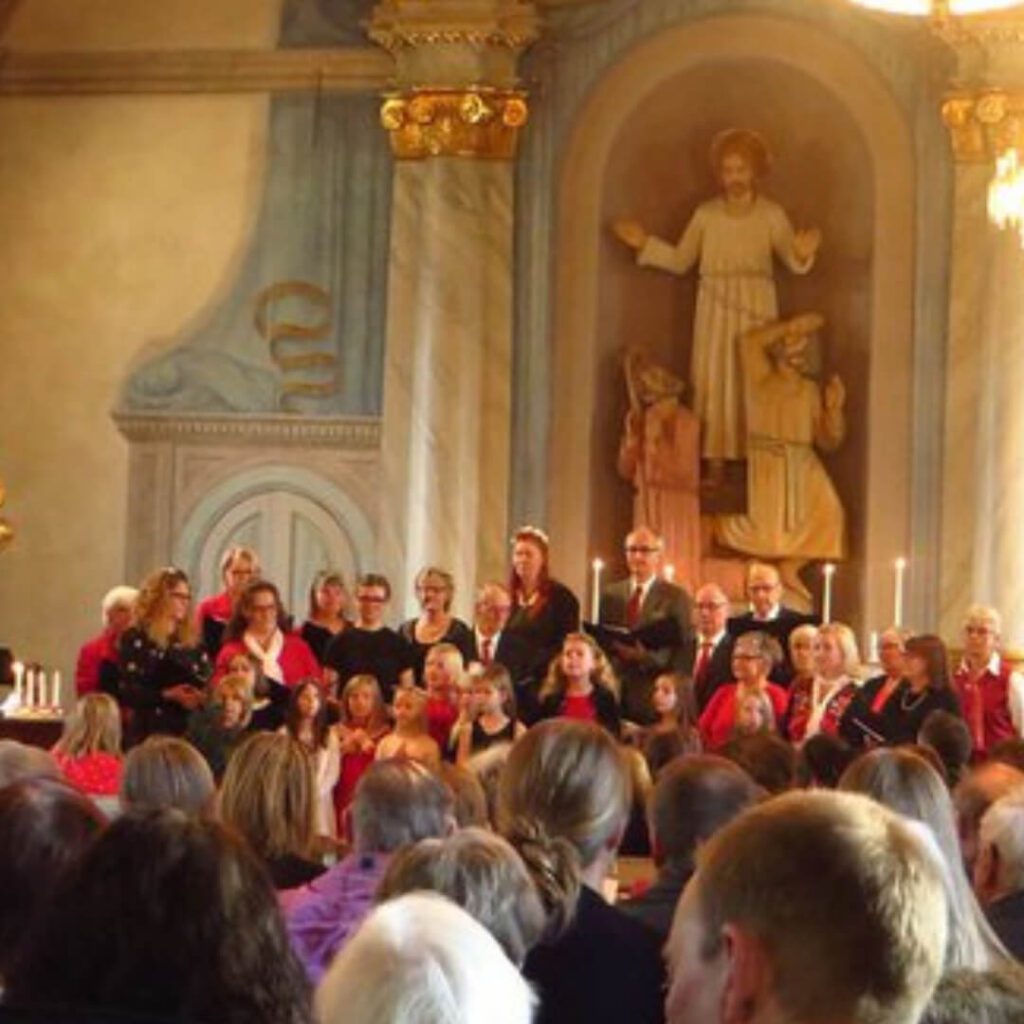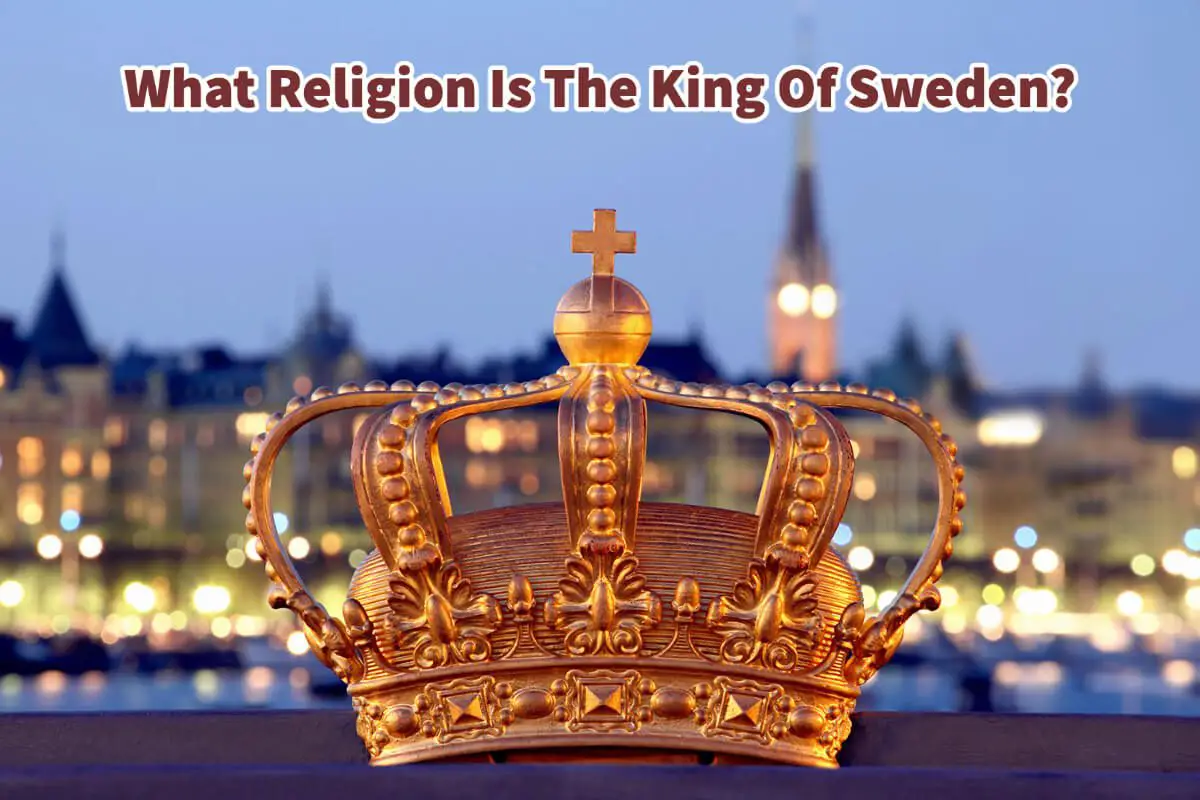For over 500 years, every newborn in Sweden was automatically registered as a member of the Church of Sweden or the Lutheran denomination. Since 2000, this has officially changed with a new law about the Church of Sweden and its relationship to the Swedish government and the Swedish monarchy.
The King of Sweden is still required by The Act of Succession to be a member of the Church of Sweden. The law states that the King and anyone in line for succession to the throne must be a member of the Church of Sweden. Sweden’s Royalty is a symbol of Sweden. By having the Royal Family continue to be a member of the Church of Sweden, they symbolically hold to Sweden’s Christian heritage.
Table of Contents
The King Of Sweden Is Lutheran
The King of Sweden is Evangelical Lutheran. Even though in 2000, the Church of Sweden was no longer the official church in Sweden, the Succession Act has not changed. The Swedish Succession Act states that anyone who is the King or Queen of Sweden must be Lutheran.
The Succession Act, Article 4 states
“Art. 4. In accordance with the express provision of Article 2 of the Instrument of Government of 1809 that The King shall always profess the pure evangelical faith, as adopted and explained in the unaltered Confession of Augsburg and in the Resolution of the Uppsala Meeting of the year 1593, princes and princesses of the Royal House shall be brought up in that same faith and within the Realm. Any member of the Royal Family not professing this faith shall be excluded from all rights of succession.”
The act Of Succession
The Succession Act states that the King should always be Evangelical Lutheran or a member of the Church of Sweden. It also further states that the royal house meaning the prince and princesses should also be of the same faith, or in other words, the Church of Sweden.

Even though in 2000, the Church of Sweden is no longer the official church in Sweden, under the Succession Act for the Royal Family, the King and others who succeed him should be a member of the Church of Sweden or the Evangelical Lutheran Church.
It also goes on to say that any member of the Royal Family who is in line for the succession to the throne must be a member of the Chruch of Sweden, or they will “be excluded from all rights of succession,” or they will no longer be able to be in succession for the throne.
Another part of the law of succession states that anyone in line to the throne should have “the same faith or within the Realm.” Some say they could be another similar religion to the Evangelical Lutheran faith, but most feel it means that the Royal family and those in line for the throne must be a member of the Church of Sweden.
Over the years, a few things have been repealed or changed to this act, such as that now Crown Princess Victoria will succeed her father to the throne. But what has not changed with The Act Of Succession is that the King, Queen whoever rules Sweden or is in line for the throne, must still be a member of the Church of Sweden or the Evangelical Lutheran Church.
To learn more about the Church of Sweden and Religion in Sweden, you can read our blog, What Is The Official Religion Of Sweden? Guide To Sweden And Religion by clicking here.
Sweden’s Royalty And The Church Of Sweden
The importance of Sweden’s royal family belonging to the same religion dates back to 1544 when Sweden adopted the Lutheran denomination for their state religion. Sweden is the only Nordic country with no official state religion. Instead, it follows an Act of Succession, which requires members of the royal family to be members of the Church of Sweden.
This requirement is seen as a way to help Sweden maintain its national identity, with the Church of Sweden playing an essential role in Sweden’s cultural and spiritual heritage. Additionally, belonging to the same denomination ensures that members of Sweden’s royal family can maintain their commitment to Sweden’s Christian traditions.

Many Swedish cultures and heritage traditions are tied to the Church of Sweden. An example would be the Swedish Celebration of St. Lucia on December 13th; most St. Lucia celebrations in Sweden occur within the Church of Sweden.
Even though many Swedes do not attend church, there may be traditional days or holidays where they will attend Church, such as the St Lucia celebrations on December 13th.
The requirement for the King of Sweden to be Lutheran is also seen as a way for the King of Sweden to serve as a role model for Sweden’s citizens by showing them the importance of following Sweden’s religious traditions. The King is a symbol of Sweden and is expected to uphold Sweden’s values and beliefs, so it is essential that he remains part of this Church and upholds the importance of the Church of Sweden.
At A Bus On A Dusty Road, we talk about travel, life, and ex-pat living. We are all about “Living Life As A Global Citizen.” We explore social, cultural, and economic issues and travel.
We would love to have you be part of our community. Sign up for our newsletter to keep up-to-date by clicking here. If you have any questions, you can contact me, Anita, by clicking here.
Listen to our Podcast called Dusty Roads. You can find it on all major podcast platforms. Try out listening to one of our podcasts by clicking here.
Subscribe to our A Bus On A Dusty Road YouTube Channel with great videos and information by clicking here.
Frequently Asked Questions
1. What is the Act of Succession, and why does it require the King of Sweden to be a member of the Church of Sweden?
The Act of Succession is a Swedish law that dictates the rules of royal succession to the throne. It requires the King of Sweden and those in line for succession to be members of the Church of Sweden, emphasizing the historical and symbolic role of the monarchy in upholding Sweden’s Christian heritage.
2. How long has the requirement for the Swedish monarch to be a member of the Church of Sweden been in place?
This requirement has been in place for over 500 years, dating back to the establishment of the Church of Sweden and its close ties to the Swedish monarchy.
3. Has there been any recent change in the law regarding the Swedish monarch’s affiliation with the Church of Sweden?
Since 2000, there have been legal changes that have altered the automatic registration of newborns as members of the Church of Sweden. However, the requirement for the King and those in line for succession to be members of the Church of Sweden remains intact.
4. What role does the Church of Sweden play in the country’s history and culture?
The Church of Sweden has played a significant role in Sweden’s history and culture, serving as a cornerstone of its Christian heritage. It has traditionally been closely linked to the monarchy and continues to have a symbolic significance.
5. Are there any exceptions to the requirement for the King to be a member of the Church of Sweden?
No, there are no exceptions specified in the Act of Succession. It mandates that the King and those in the line of succession must be members of the Church of Sweden.
6. How does the requirement for the King to be a member of the Church of Sweden impact the royal family’s public image and role in Sweden?
The requirement reinforces the symbolic role of the royal family in upholding Sweden’s Christian heritage, contributing to their image as custodians of the nation’s traditions.
7. What is the current relationship between the Church of Sweden and the Swedish government?
The Church of Sweden and the Swedish government have undergone changes in their relationship over the years. It has evolved from a state church to an independent entity. The Church is still financially supported by the state but no longer holds the same legal and administrative powers it once did.
8. Does the requirement for the King to be a member of the Church of Sweden affect religious freedom in Sweden?
The requirement is specific to the monarch and those in line for succession, and it does not impact the religious freedom of the general population. Sweden upholds the principle of religious freedom for its citizens.
9. Are there any debates or discussions in Sweden about potentially changing the Act of Succession regarding the King’s religious affiliation?
As of my last knowledge update in September 2021, there were occasional discussions and debates about the Act of Succession and the monarchy’s role in modern Sweden. However, any significant changes to this law would require a complex political and constitutional process.
10. How does the requirement for the King to be a member of the Church of Sweden compare to similar provisions in other European monarchies?
The requirement for the Swedish King to be a member of the Church of Sweden is unique to Sweden. While other European monarchies may have historical ties to specific religions, the nature of these relationships varies widely, and many European monarchs no longer have religious requirements associated with their roles.
Related Questions
Is Swedish Cooking Bland?
Swedes have always embraced foods from other cultures and places. Like most parts of the world, the Swedes used local ingredients to spice up and flavor their food. Swedish food is a northern European food, so if you know how and what to eat, it is rich and full of unique flavors.
You can read our blog on Is Swedish Cooking Bland? by clicking here to learn more.
Lapland Or Sapmi – In Norway, Sweden, Finland, And Russia
The Sami are indigenous people who live in northern parts of Norway, Sweden, Finland, and Russia, known as Lapland or Sapmi. Most Sami people live in Norway and Sweden, some in Northern Finland, and a few in Russia.
You can read our blog on Lapland Or Sapmi – In Norway, Sweden, Finland, And Russia by clicking here.
What Is It Like To Live In Sweden Without Knowing Any Swedish?
In Sweden, most of the population can’t speak fluent English. But even if they can not speak English, the Swedish government offers many courses to immigrants and professionals who will live and work in Sweden. They offer these courses because they believe learning Swedish will help you integrate into Swedish society.
You can read our blog on What Is It Like To Live In Sweden Without Knowing Any Swedish? by clicking here.


